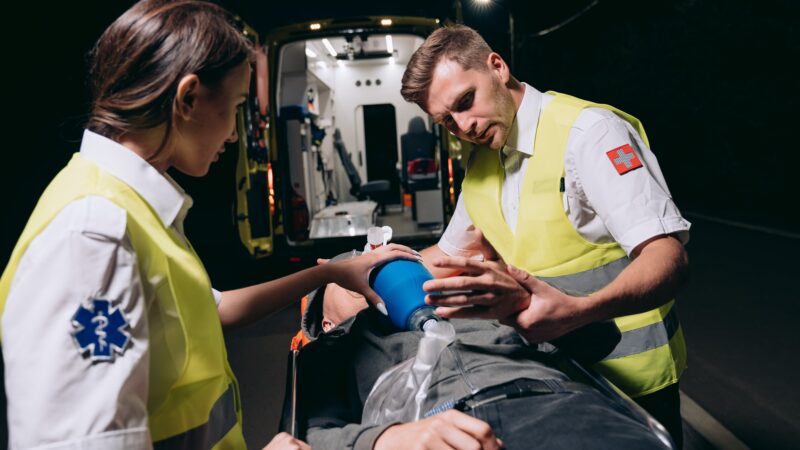Upholding Integrity: The Crucial Role of Ethics and Professionalism in Medical Education

Introduction:
Ethics and professionalism lie at the heart of medical practice, serving as guiding principles that shape the behavior and decision-making of healthcare professionals. In the complex and ever-evolving landscape of healthcare, medical education plays a pivotal role in instilling these values in future physicians. This article delves into the importance of ethics and professionalism in medical education, exploring how these principles are taught, cultivated, and upheld throughout the training of aspiring healthcare professionals.
- The Foundation of Ethics and Professionalism
- Defining ethics: The study of moral principles and values that govern human behavior, particularly in the context of healthcare.
- Professionalism in medicine: The adherence to ethical standards, integrity, accountability, and responsibility in the practice of medicine.
- Historical context: The evolution of ethical principles and professional standards in medical practice, from the Hippocratic Oath to contemporary codes of conduct.
- Teaching Ethics and Professionalism in Medical School
- Formal education: Incorporating ethics and professionalism into the medical school curriculum through dedicated courses, seminars, and workshops.
- Case-based learning: Utilizing real-life clinical scenarios to explore ethical dilemmas and promote critical thinking and moral reasoning skills.
- Role modeling: Emphasizing the importance of positive role models, mentorship, and observational learning in shaping students’ professional identities.
- Interdisciplinary perspectives: Integrating insights from philosophy, law, psychology, and other disciplines to provide a comprehensive understanding of ethical issues in healthcare.
- Core Principles of Medical Ethics
- Respect for autonomy: Recognizing patients’ right to make informed decisions about their own healthcare, free from coercion or undue influence.
- Beneficence and nonmaleficence: Acting in the best interests of patients while avoiding harm and minimizing risks associated with medical interventions.
- Justice: Ensuring fair and equitable distribution of healthcare resources and access to quality care for all patients, regardless of socioeconomic status or background.
- Confidentiality: Safeguarding patients’ privacy and maintaining the confidentiality of their medical information, except when required by law or for the patient’s welfare.
- Professionalism in Clinical Practice
- Compassionate care: Demonstrating empathy, kindness, and sensitivity towards patients’ physical, emotional, and spiritual needs.
- Integrity and honesty: Upholding the highest standards of integrity and honesty in all professional interactions, including transparent communication with patients and colleagues.
- Accountability and responsibility: Taking ownership of one’s actions, admitting mistakes, and striving to learn and improve from them.
- Collaboration and teamwork: Working collaboratively with other healthcare professionals to provide coordinated, patient-centered care and respect the expertise and contributions of all team members.
- Ethical Challenges and Dilemmas in Medical Practice
- End-of-life care: Navigating complex decisions surrounding euthanasia, palliative care, and withdrawal of life-sustaining treatment.
- Informed consent: Balancing the need to provide patients with comprehensive information about treatment options, risks, and benefits while respecting their autonomy and preferences.
- Conflict of interest: Managing conflicts of interest that may arise from financial relationships with pharmaceutical companies, research sponsors, or other external entities.
- Cultural competence: Recognizing and addressing cultural differences, beliefs, and values that may influence patients’ healthcare decisions and preferences.
- Evaluating Ethics and Professionalism in Medical Education
- Objective assessments: Incorporating ethical reasoning and professionalism into standardized examinations, objective structured clinical examinations (OSCEs), and portfolio evaluations.
- Self-reflection and feedback: Encouraging students to engage in reflective practice, self-assessment, and peer feedback to identify areas for growth and improvement.
- Faculty mentorship: Providing guidance, support, and mentorship from experienced faculty members who serve as role models for ethical conduct and professionalism.
- Cultivating a Culture of Ethical Leadership
- Institutional support: Creating a supportive learning environment that prioritizes ethics, professionalism, and well-being, with resources and mechanisms for addressing ethical concerns and promoting self-care.
- Professional organizations: Engaging with professional organizations and societies that promote ethical standards, professional development, and advocacy for patients’ rights and welfare.
- Lifelong learning: Emphasizing the importance of continuous self-improvement, lifelong learning, and ongoing professional development to uphold ethical standards and adapt to evolving healthcare challenges.
Conclusion:
Ethics and professionalism are fundamental pillars of medical practice, guiding the behavior and decision-making of healthcare professionals as they navigate the complexities of patient care. In medical education, the cultivation of ethical reasoning, integrity, and professionalism is paramount to preparing future physicians to uphold these values throughout their careers. By integrating ethics and professionalism into the medical school curriculum, fostering a culture of ethical leadership and accountability, and providing ongoing support and mentorship, medical educators can empower students to embody the highest standards of ethical conduct and professionalism in their practice of medicine.





